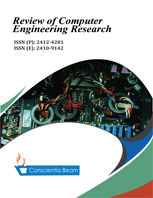A General Approach for Meeting Summarization: From Speech to Extractive Summarization
DOI:
https://doi.org/10.18488/76.v9i2.3038Abstract
Developing technologies and techniques have increased the amount of information and enabled easier access to information resources. However, due to the ever-growing amount of information sources, it has become difficult to access the information needed in a limited time. Consequently, the need for summary information has become important. This research is focused on the extraction of inferential written summaries of communications that occur in oral environments such as meetings, lectures and conferences. However, since this type of problem requires conversion from audio to text, it also includes issues such as the human factor, sound recording environments, and language-specific problems. This study aimed to take the audio recordings of the meetings, especially the IT sector, to process and summarize. Spontaneous conversations were converted into audio recordings and the obtained texts were summarized using extractive summarization techniques. The motivation of the study is to catch the important points that may escape the attention of the individuals at the meeting and to summarize the main agenda items for the personnel who could not attend the meeting. The experimentally generated dataset (converted from audio recordings to text) was summarized by three different human summarizers and compared with the summaries obtained from the developed inferential summative model. The results obtained are remarkable and it is seen that approximately 71% success was achieved.





